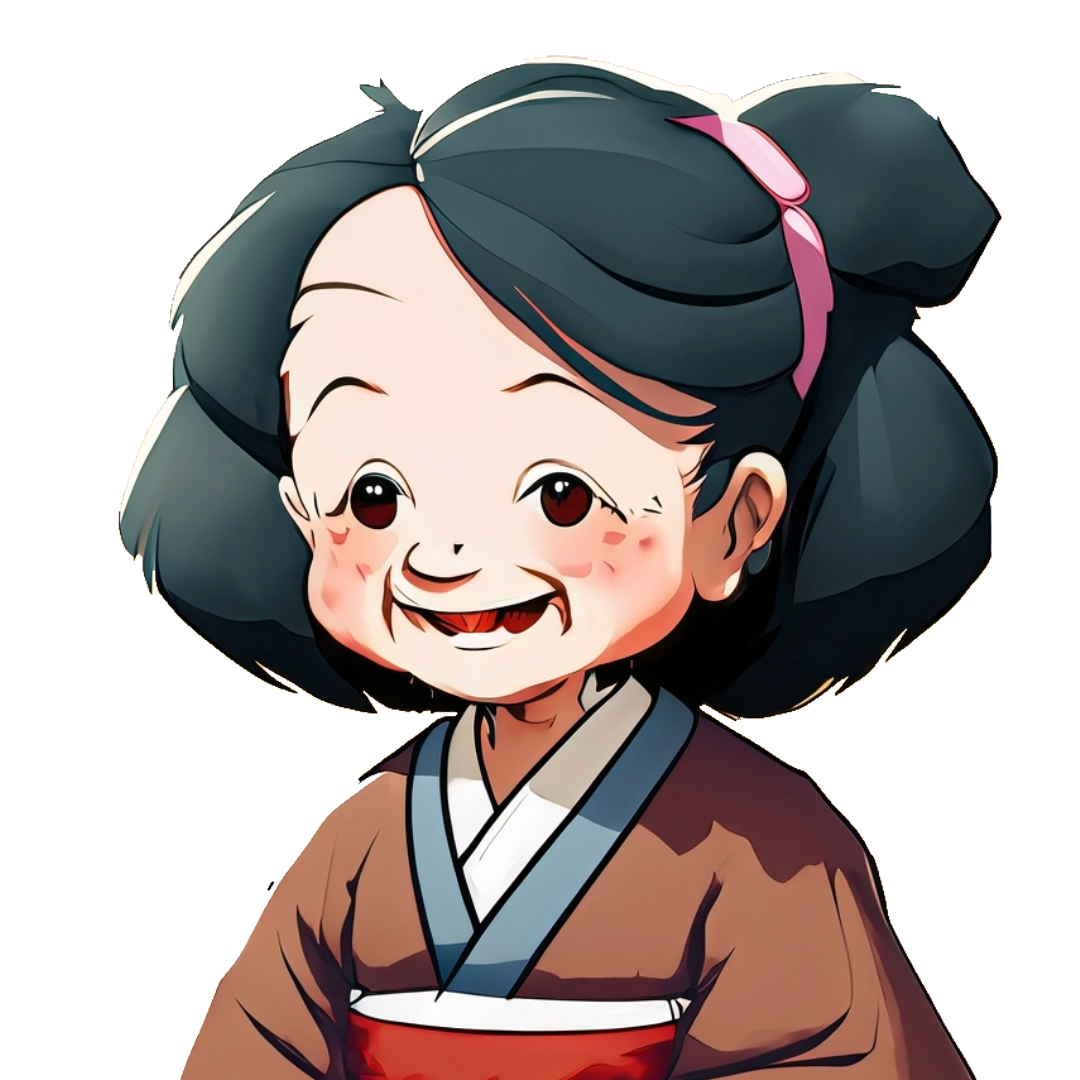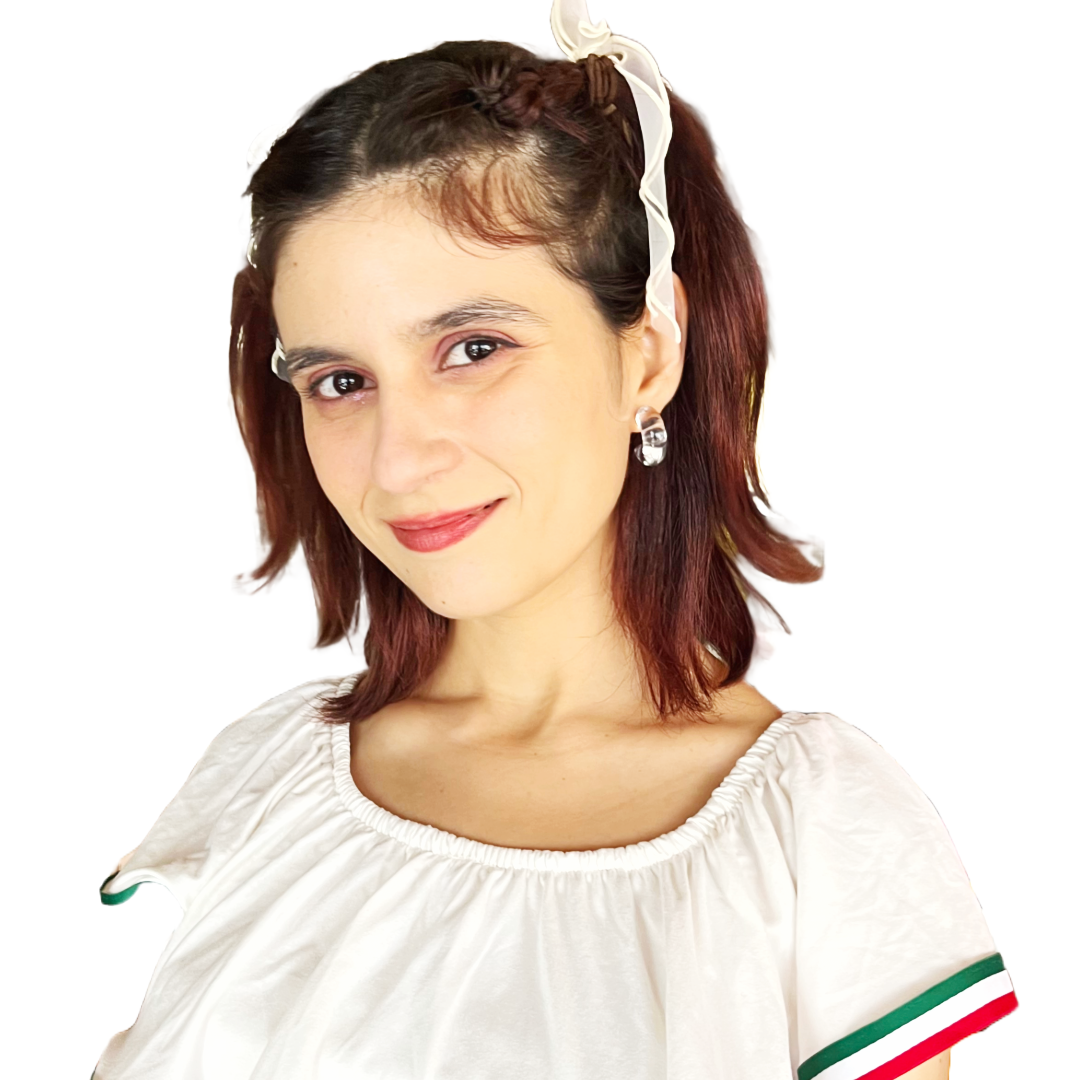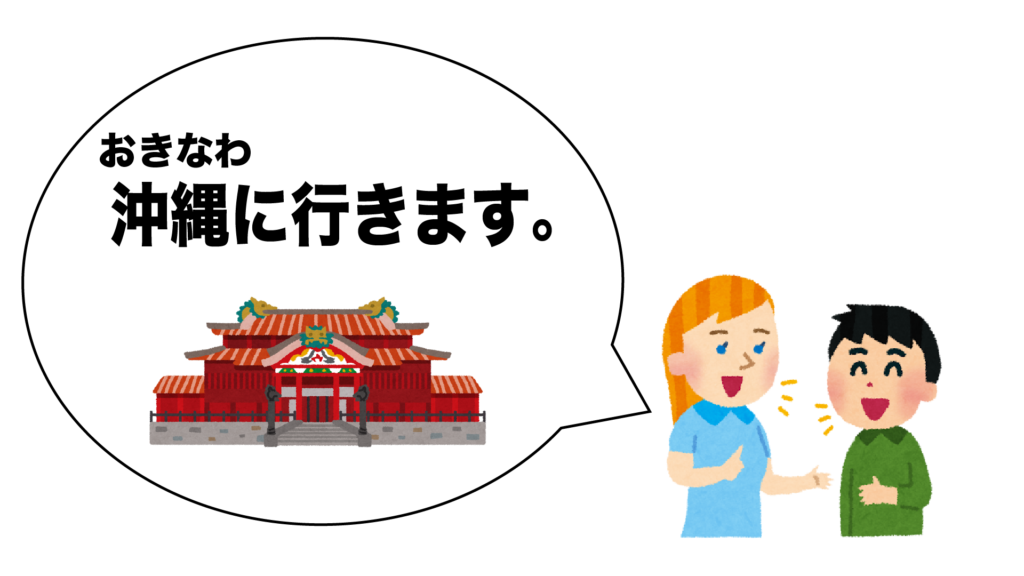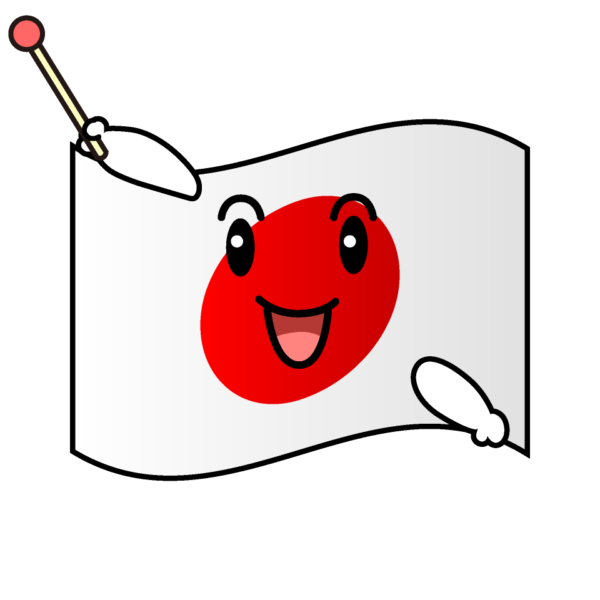
女王は老婆の姿になって、白雪姫の会いに行きました。

いらっしゃいませ、おいしいりんごを売っていますよ。

まぁ、おいしそうなりんご! おばあさん、このりんごを1つくれませんか

老婆は白雪姫にりんごをあげました。
白雪姫はおばあさんからりんごをもらいました

すみません。 袋をくれませんか

おばあさんは白雪姫に袋をあげました。
白雪姫はおばあさんから袋をもらいました

領収書をくれましたか。

老婆は領収書を白雪姫にあげました。
白雪姫は領収書をおばあさんからもらいました。
| あるく | walk |
| みなさん | everyone |
| はしる | run |
| いっしょに | together |
| 買い物 かいもの | shopping |
| 休日 きゅうじつ | day off, holiday |
| いろんな | various |
| もの | things |
| 売ります うります | sell |
What is the dictionary form of a verb?
In the introduction of volume 3, we briefly explained about the dictionary form of verbs. This time, we’ll study the “dictionary form” of verbs in detail.
How to form the dictionary form of a verb
1gr.
- Remove “ます”
- Change the final “i” sound to a “u” sound.
はなします ha na shi ma su → はなす ha na su
| ます form | dic. form |
|---|---|
| 言います いいます say | 言う |
| まちます wait | まつ |
| とります take | とる |
| しにます die | しぬ |
| あそびます play | あそぶ |
| のみます drink | のむ |
| かきます write | かく |
| およぎます swim | およぐ |
| はなします talk | はなす |
| 行きます いきます go | 行く |
2 gr.
Just change “ます” to “る”
| ます form | dic. form |
|---|---|
| ねます sleep | ねる |
| あけます open | あける |
| みます look | みる |
3 gr.
Please memorize it as it is.
| ます form | dic. form |
|---|---|
| します do | する |
| 来ます come | 来る |
| (べんきょう)します study | (べんきょう)する |
Vdic.ことが好き
We learned “ga suki” in Vol.5?
Do you remember it?

コーヒーが好きです。
I like coffee.
Before the particle “が” you place nouns, which refer to objects or person.
You cannot place verbs before it.

コーヒーをのみますが好きです。❌
I like drinking coffee.
However, by changing the verb to its dictionary form and adding “こと,” it can be treated as one noun word.

コーヒーをのむことが好きです。✅
I like drinking coffee.
In the above case, the highlighted phrase “コーヒーをのむこと” becomes one noun phrase.

ぼくは休日は買い物をすることが好きです。
I like shopping on my day off.

ぼくは歩くことが大好きです。
I love walking.
Similarly, you can also use “dislike,” which is the opposite of “like.”

べんきょうすることがきらいです。
I dislike studying.
| 朝ごはん あさごはん | breakfast |
| 電車 でんしゃ | train |
Please rearrange the words
Q1:I dislike reading books.
Q2:I don’t like taking the train.
1. 本をよむことがきらいです
2. 電車にのることが好きじゃないです。


